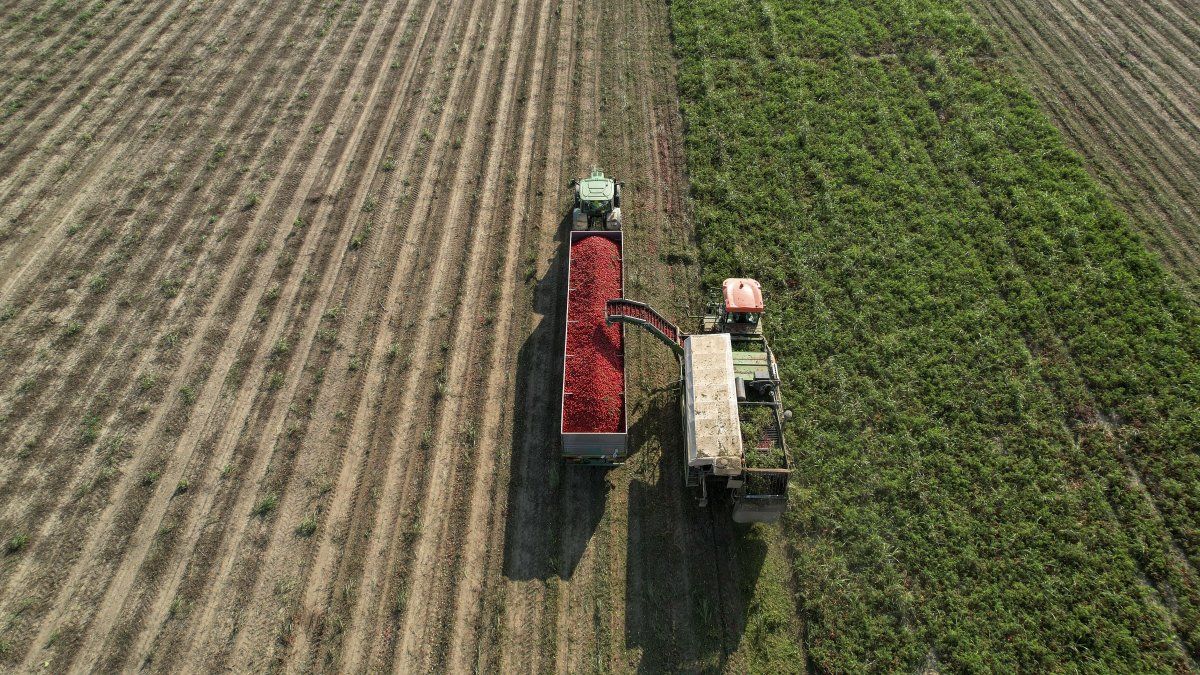“The cultural change of zero deficit was installed,” said Javier Goñi, General Manager of Ledesma, in a meeting of the chain’s businessmen with the press. And with this premise that has become the Government’s mantrathe leaders of the field know that the possibility considered a year ago was far away.
Instead they talk about efficiency, in line with international mandates, producing more and better for a world that demands food.
They highlight the need for improve infrastructure despite the fact that the Government has made the biggest cut in history in that item. They ask for an improvement in the waterway and for routes that transport their national production and not only that, but also to be Brazil’s route to reach China more easily.
With a scenario where the energy sector is presented as the hope of Argentina, the countryside, the third largest food producer in the world and the main actor for foreign currency incomes seeks to redefine itself in a context of low international prices, climate challenges, environmental goals and why not contribute to the challenge of generating energy from biomass.
Field goals
Some of the premises that are imposed are old acquaintances, such as the importance of “added value.” “It is a sector that can clearly boost foreign exchange earnings through value addition and that We are betting on each of the members or the links that are part of the sector”indicated Juan Farinati, president of Bayer.
In that sense, Marcos Bradley, Latam regional director of Syngenta, stated: “The sector today is a great contributor to the Argentine economy. 20% of GDP, 60% of exports, but if you look at the net foreign exchange that enters to the country, which is what is exported less what is imported, the agro-bioindustrial sector contributes 83% of the foreign currency. Sectors such as mining, which is talked about so much, contribute 9%.
“So there is a very large distance between the capacity that the sector in Argentina already has with the rest of the sectors and that must be highlighted,” he concluded.
Beyond the fact that Argentina is the third largest country in food production, Bradley stressed that with macro adjustment “there is a lot of potential and things we could do.”
“TWe have a diversity of productivity and a capacity to produce things from sciencetechnology, primary production but also fibers, food, biofuels, bioenergy, technology startups. There is much more to give, the sector is much more complex than just the countryside,” he noted.
This was defined in a meeting of the sector with the press in the context of the IDEA Colloquium, in which Mariano Bosch, Co-founder and CEO of Adecoagro, participated; Juan Farinati President and CEO Bayer; Hernan Busch – Leader of the Agro division of Banco Galicia; Juan Lariguet, President Corteva; and Federico Lufft, Vice President of Milicic.
Also present were: Manuel Santos Uribelarrea, founder and CEO MSU Agro; Ignacio Lartirigoyen, founder of Lartirigoyen; Luis Colmegna, General Manager of Lartirigoyen; Javier Goñi, General Manager of Ledesma; Marcos Sabelli, CEO of Profertil; Ricardo Yapur, president of Rizobacter; Marcos Bradley, Latam Regional Director of Syngenta; and Gustavo Armendáriz, director of Tempra SA
Source: Ambito
David William is a talented author who has made a name for himself in the world of writing. He is a professional author who writes on a wide range of topics, from general interest to opinion news. David is currently working as a writer at 24 hours worlds where he brings his unique perspective and in-depth research to his articles, making them both informative and engaging.




